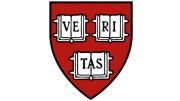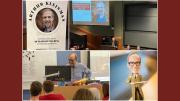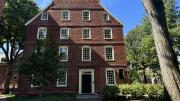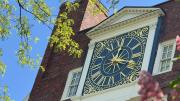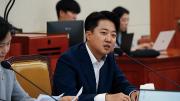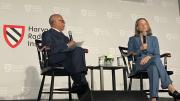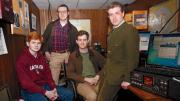During their last regular meeting of the academic year, on May 3, the Faculty of Arts and Sciences (FAS) voted by a 3:2 margin to replace the “shopping” period—the beginning-of-term week in which students sample courses before making their selections—with a system of previous-term registration. Although the shopping week created administrative headaches, uncertainties for graduate students, and left some undergraduates scrambling at the last minute for courses whose section meeting times would fit their schedules, it was nevertheless dear to most College students: 96 percent of undergraduates reportedly wished to retain the existing system. During the deliberations, more than a few faculty members who had attended Harvard College as undergraduates expressed similar sentiments, citing the importance of course sampling to shaping their subsequent careers.
The broader alumni community also weighed in on the matter previously, through letters to this magazine. An editorial published in these pages, “Efficiency and Productivity in the Academy,” noted that while the “efficiency gains” of reforming the system are “undeniable,” they “surely come at some cost to Harvard’s historic commitment to a broader definition of intellectual and academic productivity: hard to quantify, to be sure, but now less valued in a real sense.” That said, the editorial noted that the advantages of the proposed system are many:
matching teaching assistants to enrollments (a matter of genuine importance to graduate students), fitting classes to classrooms, not wasting the first week of instruction. The committee proposing the new system also urges a liberalized first-week add-drop procedure; an “earlier cycle for curricular planning”; better advising; and better enrollment technology—collectively worthwhile, but not easy to effect. If everything gels, the whole process would assuredly be less chaotic, and real pedagogical benefits would accrue (if not necessarily all to undergraduates, who oppose the change).
By the time the faculty met on May 3, formal discussion of the proposal had occupied a substantial portion of two prior meetings, on March 1 and April 5. The work to develop an alternative system, by the Committee on Course Registration, stretched back even further, to 2019.
Professor of philosophy Bernhard Nickel, the committee chair, was at pains to emphasize that the case for change was educational in nature, not administrative. The goal, he said, was to enhance education. And he reminded those present of the arguments presented by professor of psychology Daniel Gilbert at the April faculty meeting. Gilbert had reported that it is common for people to prefer sampling something (courses, in this case) over relying on the experiences of others—despite research suggesting that the experiences of others are a better guide to our own future happiness. He said that when he asked students if they used the Q guide, (once a paperback book, now a database, that summarizes the experiences of other students who have taken a course) the typical student said they had not. Gilbert went on to argue that the job of the faculty was not to give students what they think they want, but what they actually need, and that adopting previous-term registration would benefit everyone.
Nickel added that lotteries for oversubscribed courses could be conducted in advance with a prior registration system. And he said that no other University would be as flexible with respect to course choice and add/drop provisions, even after a previous-term registration system had been implemented.
Senior lecturer on social studies Anya Bassett said that she supported the new proposal, which includes the provision that students may add or drop a course without instructor approval in the first week, and a goal of better advising, because that would encourage students to slow down and develop closer connections to professors. The current system, she said, encourages students to literally run between classes that interest them from the outset of the semester, setting the wrong tone.
Her testimony was followed by that of three College alumni who are now professors. Noam Elkies, professor of mathematics, pointed out that in his field, instructors frequently change from year to year, and that made sampling superior to surrogation (countering Gilbert’s argument for use of the Q guide to choose courses). Assistant professor of environmental science and engineering and of earth and planetary sciences Marianna Linz recalled that a serendipitous tip from a friend encouraged her to attend a class in what is now her area of scholarship, and that she would not have discovered her passion for the field without the shopping period. The idea that faculty know better is wrong, she asserted. Assistant professor of physics and applied physics Julia Mundy recounted how, coming from a small school, she was not confident that she could manage the advanced introductory course in the physics department. Shopping the course was the only experience that could have convinced her that she belonged in that class, she said.
In response to these personal accounts, and echoing Gilbert’s assessment of the opinions of undergraduates, Goelet professor of French history Mary Lewis suggested that these professors’ stories might be influenced by “confirmation bias,” the tendency to interpret one’s experience as especially valuable, despite evidence to the contrary. Lerner professor of biological sciences Daniel Lieberman, on the other hand, noted that every student he had asked supported shopping week, and worried that dismantling it on the grounds that the faculty knows best would be paternalistic.
Senior lecturer on economics Jeffrey Miron, after noting the strong tendency for speakers who graduated from Harvard to oppose the change, questioned whether it might lead to more, rather than less, chaos; this, because the new system actually does allow shopping, at least in the sense of incorporating a liberalized add/drop provision.
Other commenters expressed further logistical concerns. Gleason professor of visual and environmental studies Giuliana Bruno, for example, pointed out that professors teaching contemporary culture would have difficulty preparing their syllabi in advance. And because any change would take effect in the FAS but not other Harvard faculties, it would complicate cross-registration, and undermine efforts toward interdisciplinarity and the “one Harvard” concept. Joseph professor of computer science and applied mathematics Salil Vadhan made several points that echoed those of other former Harvard undergraduates, and added that he felt the proposal was too important to leave to a future committee, which will be charged with working out the practicalities of the change, scheduled for the fall of 2023, when students would register for spring 2024 classes. Lane professor of the classics Richard Thomas, who has served as a freshman adviser for the past 25 years, worried about the advising process for those students in particular. The new system, by requiring them to pre-register for classes before they have arrived on campus, he pointed out, will deprive them of a personal advising experience.
Professor of sociology Jocelyn Viterna, however, spoke forcefully about some of the negative impacts of the current system, describing a course that steadily enrolled 85 students each year, until one year, enrollment dropped to just 18, impacting teaching and classroom needs. She also described how shopping forced professors to interview teaching fellows for sections into the fourth week of the 12-week semester, and left some students searching for another course when they should already be focusing on the curriculum.
With less than a quarter of an hour before the scheduled 5 P.M. end time for the two-hour Zoom meeting, and with four faculty members still queued to comment, the question was called (and seconded), to see whether faculty were ready to vote on the proposal. The call passed with the required two-thirds majority, effectively ending discussion; had it not passed, the discussion could have been carried over to the next regular meeting of the faculty on October 11. The assembly then proceeded to the vote on the proposal itself, which required only a simple majority to pass. When the votes were tallied, 61 percent of the faculty approved the change, and 39 percent opposed it.
President Lawrence S. Bacow noted that the faculty had devoted a considerable amount of debate and discussion to the proposal, adding that, like accountants on April 15, academics face hard deadlines to complete their work. He had not been a student at the College himself, he said, and had therefore learned a great deal about the undergraduate course selection process as a result of faculty discussions. He thanked everyone for their hard work, and hoped to see them again at end-of-the-year functions, including Commencement.
The meeting was also the occasion for annual teaching awards, conferred by FAS Dean Claudine Gay. FAS’s highest commendation for teaching is the Harvard College Professorship, given in recognition of distinguished contributions to undergraduate teaching (in general education and concentrations), advising, and mentoring, as well as work in graduate education and research. This year’s honorands, who hold the title for five years and receive additional support for their research, are:
- Khaled El-Rouayheb, Jewett professor of Arabic and of Islamic Intellectual History, director of the Prince Alwaleed Bin Talal Islamic Studies Program, and chair of the department of Near Eastern Languages and Civilizations;
- Ju Yon Kim, professor of English and chair of the committee on Theater, Dance, and Media; and
- James Mickens, McKay professor of computer science
Winners of the Roslyn Abramson Award for outstanding undergraduate teaching, also announced at the meeting, are assistant professor of human evolutionary biology Rachel Carmody, and assistant professor of the history of science Hannah Marcus.
